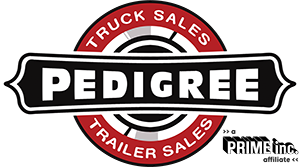If your livelihood depends on keeping your semi-truck on the road as much as possible, it can be tempting to just let it run until it breaks.
As long as the engine cranks, the tires look okay and the wheels are turning, why put your vehicle in the shop where it isn’t making you any money?
But the time and resources you invest in a plan that includes regular preventive maintenance service, by a qualified OEM-certified technician, can pay dividends in the long run. And neglecting maintenance often ends up costing far more in repairs than the money you save in the short term.
Why Invest in a Semi-Truck Preventative Maintenance Program?
There are many reasons why preventive maintenance is important, whether you run a single semi-truck or an entire fleet:
-
-
-
Legal reasons.
If you fail to keep your truck in good condition, and the truck is involved in a traffic accident, you could be held negligent.
-
Safety.
The fact is, a well-maintained vehicle is safer for the driver and everyone else on the road. Not only does that reduce the risk of lawsuits, it also increases the likelihood of everyone getting home safely.
-
Prevent excessive breakdowns and emergency repairs.
Unscheduled maintenance – because of breakdowns or accidents — usually ends up being more expensive than regular preventive maintenance appointments.
-
Maximize the life span of your truck.
The longer your tractor-trailer lasts, the longer before you have to buy a new one, which also means lower replacement costs.
-
Maximize fleet availability.
If you have a fleet of say, 10 heavy-duty commercial trucks, preventive maintenance can be scheduled so that only one truck is being serviced at a time, while the other nine are out hauling loads. That way, you keep all of your vehicles in good condition and maximize productivity.
-
-
A 2013 study showed that trucks getting preventive maintenance had 20% fewer days down per service repair. In other words, preventive maintenance actually means more time on the road, not less.
Semi-Truck Preventative Maintenance Checklist
A semi–truck or commercial vehicle maintenance program is typically based on parameters such as mileage, engine hours, fuel usage or time since the last appointment.
The following services are generally included in your preventive maintenance plan:
- Vehicle inspection
- Lubrication
- Adjustment
- Cleaning
- Testing
- Repair
- Worn parts replacement
Your technician should perform a thorough inspection of all parts and fluids. Make sure all of the following items are on your preventive maintenance checklist:
| Engine and oil filter changes
Transmission fluid Fuel system Cooling system Engine and transmission mounts Drive shaft or CV joints Belts and hoses |
Tune-ups
Electrical system components Braking system Steering and suspension system Tires, wheels, and rims Exhaust system Undercarriage and frame |
Exterior and interior lights
Body, glass and mirrors Windshield wiper system Horn Seatbelts and seat structures Fluid leaks Auxiliary systems |
How Can Drivers Help with Your Fleet Maintenance Program?
You drivers also have an important role to play in preventive maintenance in between service appointments.
Every driver you hire must know how to perform a preventive maintenance inspection on his or her vehicle regularly and report problems immediately.
- Vehicle safety items — tires, wipers, horn, brakes, steering
- Vehicle drivability items — misfire, rough idle
- Vehicle body — glass, body damage, cleanliness
- Miscellaneous repair items — heater, radio
There are other things operators can do to keep the
engine in good condition and maintain good fuel efficiency:
- Check oil daily or upon pre-trip inspection
- Look for coolant leaks daily or upon pre-trip inspection
- Check warning lights and malfunction indicator lights daily or during pre-trip inspection
- When refueling, observe fuel for contamination.
- Check diesel exhaust fluid level and note rate of DEF consumption
- Observe tailpipe for signs of visible smoke
- Check air filter once a month and replace if dirty
Keep a Detailed Vehicle Maintenance Record for Each Vehicle
Don’t just fix and forget it. Keeping a record of each vehicle’s maintenance history will help you manage your costs, learn best practices for keeping trucks in good condition and even enhance the resale value of trucks for future buyers.
Here are just a few tips for good record-keepingfor your trucks:
- For each truck in your fleet, record parts, labor, vendor, fuel and collisions
- Analyze which vehicles cost the most to maintain
- Use service history data when deciding on future purchases
- Generate regular maintenance reports detailing scheduled and unscheduled jobs
Do you have questions about maintenance for your semi-trucks?
Contact us at Pedigree. We’ll provide information to help you get the most out of every vehicle in your fleet by investing in regular preventive maintenance.

